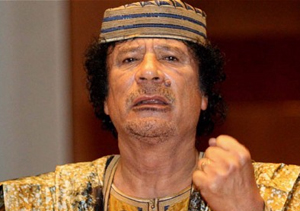 Sydney, Jan 27: After more than two years of capture and death of Libyan leader Muammer Gaddafi, details about his brutality towards young girls-turned-sex slaves have been emerging gradually.
Sydney, Jan 27: After more than two years of capture and death of Libyan leader Muammer Gaddafi, details about his brutality towards young girls-turned-sex slaves have been emerging gradually.
In BBC's documentary, for the first time the slain leader's macabre rape chamber can be seen, showing 'Gaddafi's den' where he regularly raped young girls and forced them to watching pornography.
According to news.com.au, the small, nondescript single-storey complex includes a room holding little more than a double bed with a 1970s decor and grimy Jacuzzi, all left exactly as they were when Gadaffi last used it.
What is more chilling is an actual clinical gynaecological suite in an adjoining room, where young girls were forced to undergo abortions and tested for possible STDs before being sent to Gaddafi for exploitation.
Those who were able to escape were shunned by their conservative Muslim families, those who stayed were so badly abused that they were dumped in car parks and on waste ground, and left to die.
The report said that it took the documentary-makers months of negotiations to be allowed access to information on Gaddafi as Libya remains secretive and hidebound by bureaucracy.
The BBC documentary 'Gaddafi's Secret World' will be shown on BBC4 at 10pm on February 3.






Comments
Add new comment